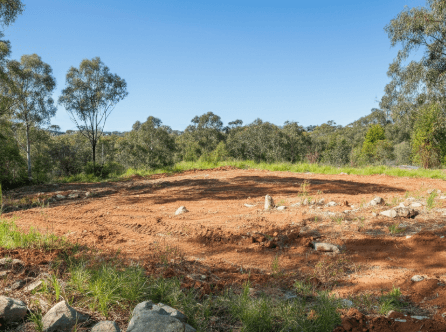What is the Standard Lot Size for a House in Florida? Depending on the region, the standard lot size for a house in Florida ranges from 7,500 to over 10,000 square feet.
Understanding the standard lot size for a house is crucial when considering purchasing property, especially in specific locations. Whether you’re a first-time buyer or looking to invest in real estate, comprehending the standard lot size for a house in Florida will help you make informed choices, ensuring the property meets your needs and preferences.
Real estate investors Steve Daria and Joleigh emphasize the importance of knowing the standard lot size when purchasing property in Florida. They highlight that the average lot size can vary significantly depending on the region. Understanding the variations can help you better assess whether a property fits your investment criteria and lifestyle needs.
Understanding the Standard Lot Size
The term “standard lot size for a house” refers to the typical dimensions of a parcel of land on which a house can be built.
This can vary widely in Florida depending on the region, zoning laws, and the type of residential property you are considering.
Generally, a standard lot size for a house in Florida averages between 5,000 to 7,500 square feet. And 1 Acre + for estate size lots.

However, this can fluctuate based on urban versus suburban settings and other local factors.
Why Lot Size Matters
Knowing the standard lot size for a house is essential for several reasons:
- Investment Value: Larger lots often have higher resale values.
- Building Regulations: Different lot sizes may come with various zoning laws and restrictions.
- Landscaping and Outdoor Space: The lot size will determine your space for gardens, pools, and other outdoor amenities.
- Privacy and Aesthetics: Larger lots can offer more privacy and aesthetic appeal.
Typical Lot Sizes in Different Areas of Florida
Exploring the typical size lots across various regions in Florida reveals significant variations influenced by local zoning regulations, population density, and urban versus rural settings.
Urban Areas
In urban settings, particularly in cities like Miami, Orlando, and Tampa, the standard lot size for a house tends to be smaller, ranging from 2,500 to 4,000 square feet.
This is due to the high demand for housing and the premium on available land.
Suburban Areas
In suburban areas like Coral Springs, Boca Raton, and Winter Park, the standard lot size for a house is more generous, often between 6,000 and 10,000 square feet.
These areas offer more space for larger homes and additional amenities.
Rural Areas
In rural settings, the standard lot size for a house can vary dramatically, often starting at 10,000 square feet and going up to several acres.
This allows for expansive properties, agricultural use, and greater privacy.
Get Started: Get Your Cash Offer Below…
We are direct land buyers. There are no commissions or fees and no obligation whatsoever. Start below by sharing where your property is and where we can send your offer…
Zoning Laws and Building Regulations
Understanding local zoning laws is crucial when considering the standard lot size for a house in Florida.
Key Zoning Categories
- Residential (R1, R2, etc.): Specifies the type of residential buildings allowed, like single-family homes, duplexes, or multi-family units.
- Commercial (C1, C2, etc.): Designates areas for commercial activities like retail stores or office buildings.
- Agricultural (A1, A2, etc.): Reserved for farming and agricultural activities.
Building Codes
In addition to zoning laws, you must comply with Florida’s building codes, which cover everything from foundation requirements to electrical wiring.
Ensure your lot size accommodates these regulations to avoid any legal issues.
Tips for Choosing the Right Lot Size
Selecting the appropriate lot size involves more than just picking a parcel of land.
Here are some strategies to help you make an informed decision:
Assess Your Needs
Determine what you need in a lot based on the following:
- Home Size: When considering the lot size for your home in Florida, it’s essential to match the size of the lot with the size of the home you plan to build.
- Outdoor Space: Your outdoor space requirements are another crucial factor in determining the appropriate lot size. If you envision a lush garden, a swimming pool, or a play area for children, you will need a lot to accommodate these features comfortably.
- Future Expansion: Planning for the future is an intelligent move when choosing a lot size. If there’s a possibility that you might want to expand your home later—perhaps adding an extra room, a garage, or even an accessory dwelling unit—it’s wise to select a lot with enough space to accommodate these potential additions.
Consult Local Experts
Real estate agents, architects, and builders can provide valuable insights into local lot sizes and zoning laws.
They can help you navigate the complexities of the local market.

Consider Resale Value
Larger lots often have higher resale values but also have higher maintenance costs.
Evaluate whether the potential resale value justifies the initial investment and ongoing expenses.
Visit Multiple Properties
Refrain from settling for the first lot you see.
Visit multiple properties to get a feel for what’s available and to compare different lot sizes and locations.
Understand the Neighborhood
The size and shape of lots can vary even within the same neighborhood.
To maintain aesthetic harmony and property values, ensure the lot you choose fits well with the surrounding properties.
Frequently Asked Questions
Find answers to common questions regarding the standard lot size for a house in Florida.
Can I build a second structure on my lot?
Generally, zoning laws dictate whether you can build a second structure on your lot.
It’s essential to consult local regulations to understand what is permissible.
What are the benefits of a more considerable lot?
Larger lots offer more privacy, potential for higher resale value, and space for additional amenities like gardens, pools, or guest houses.
How can I find out the zoning laws for my area?
The best way to learn about zoning laws in your area is to contact your local planning or zoning department.
They can provide detailed information and guidance.
Conclusion
Understanding the standard lot size for a house in Florida is crucial for homeowners, real estate investors, and property buyers alike. It affects everything from building regulations and investment value to landscaping possibilities and resale value. By assessing your needs, consulting local experts, and carefully considering zoning laws, you can make a wiser decision that meets your long-term goals.
Remember, the correct lot size for your home is about more than meeting minimum requirements. It’s about finding a space that fits your lifestyle, plans, and investment strategy. Armed with this knowledge, you’re well on your way to making a wise and satisfying real estate decision. Need more information on Florida land? Check out our Land Selling Guide.
**NOTICE: Please note that the content presented in this post is intended solely for informational and educational purposes. It should not be construed as legal or financial advice or relied upon as a replacement for consultation with a qualified attorney or CPA. For specific guidance on legal or financial matters, readers are encouraged to seek professional assistance from an attorney, CPA, or other appropriate professional regarding the subject matter.
